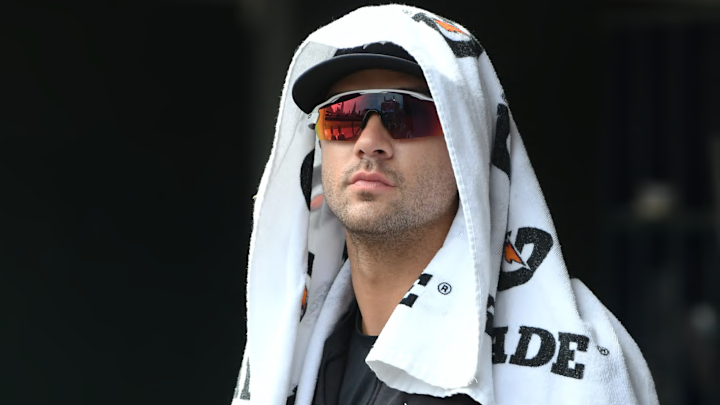After the Houston Astros traded three top prospects for Yusei Kikuchi, it became clear that if the Yankees were going to obtain Jack Flaherty, they'd have to pay an arm and a leg.
Until trade deadline day arrived, and it became clear the Yankees wouldn't take Flaherty unless they were able to throw in a fresh back, too.
Considered the market's top rental, the Yankees were either "unable to match up" with Detroit or were too scared by floating medicals to obtain him. Instead, they chose not to add a starting pitcher, and Flaherty and his 2.95 ERA will now strengthen the Dodgers, who only had to surrender one top-10 prospect (Thayron Liranzo, their third-best catcher) and a top-30 guy in Trey Sweeney to finish the deal.
Sweeney, once a Yankee, seemed to impress the Tigers, who weren't blown away by any of the players the Yankees actually kept in their upper minors, according to Bryan Hoch. Unfortunately for those looking for a silver lining, the Tigers scouts' take on the Yankees' system only further emboldens those who believe a deal still should've been struck, injury concerns or not.
Detroit reportedly only liked the Yankees' "lower-level" prospects. Given the caliber of Dodgers prospects it took to get this deal across the finish line, the Yankees probably should've budged on some marginal lower-level guys in an all-in year with Juan Soto.
Tigers scouts found the higher levels of the Yankees' system either untouchable (Dominguez, Jones) or unimpressive. A Jack Flaherty trade would have had to center on lower-level prospects.
— Bryan Hoch ⚾️ (@BryanHoch) July 31, 2024
Yankees should've dealt lower-level prospects for Jack Flaherty, duh
Even if Flaherty hits a few speed bumps, the cost doesn't seem to have been prohibitive. And if it turns out they chose to protect the wrong "lower level" prospects? Oh, well. The 2027 Tigers might have some bragging rights on the 2027 Yankees, but the 2024 Yankees would've had a higher chance of filling their trophy case in the meantime.
Now, there's nothing left to do but turn our sights to LA and watch how Flaherty holds up from afar. We'll never know if a Flaherty deal was the trade the Yankees were "pushing hard to finalize" on Saturday after adding Jazz Chisholm. We'll never know who pulled the plug on the deal -- at least, not until the next Andy Martino book.
What we do know, though, is that holding onto lower-level prospects in a championship-or-bust season, especially as the price drops and the quality of said prospects decreases out of necessity, is risk-averse GMing.
